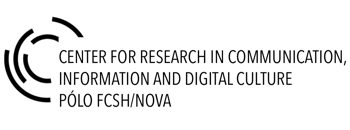CFP – Journalism, Society and Politics in the Digital Media Era (Limassol, Cyprus)
Journalism, Society and Politics in the Digital Media Era
Limassol, Cyprus – September 1 – 3, 2017
http://amiretreat2017.com/
We are pleased to announce the call for papers for the forthcoming international conference entitled “Journalism, Society and Politics in the Digital Media Era”. The conference is organised jointly by the Advanced Media Institute, the Open University (Cyprus), the Centre for the Study of Journalism, Culture and Community at Bournemouth University (UK), and the Laboratory of Research in New Economy and Development at University Hassan II Casablanca (Morocco), with the support of the Cyprus University of Technology in Limassol, Cyprus, at the premises of which the conference will be hosted.
This interdisciplinary conference aims to bring academics and professional journalists to discuss and compare the impact of technology on the relationship between journalism, politics and economics in terms of societies /communities. The conference will further discuss advances in digital journalism and its implications on news production, journalism practices, news sources, journalism content and consumption behaviour.
We are particularly interested in papers that examine the interplay between digital journalism and the political environments at various levels – from autocratic to democratising and democratic levels. The aim is to compile and contrast professional and academic perspectives on the normative roles and practices of digital journalism in varied contexts. We invite scholars from different disciplines, including media and communication studies, sociology, political science, economics, cultural studies, and anthropology to take part in the discussion. Amongst the aims of the conference is the publication of an edited volume, with selected contributions from its participants.
We call for potential speakers to submit a 300-word abstract in English or French, by Monday 27th February 2017. Submissions should include in a separate page the name of the author(s), their affiliation, e-mail address, paper title and a brief bio, and be emailed to abstracts@amiretreat2017.com. All abstracts will be peer reviewed.
Abstracts of papers are sought on topics that fit into one or more of the following themes:
1. Journalism, Politics and Democracy in the Digital Media Era
-Surveillance and freedom of speech in the digital age
-Digital journalism in authoritarian, transitional and democratic societies
-The impact of political structures on digital media systems
-Trust in journalism and politics in the digital media era
-Digital journalism, social media and political engagement
-New forms of political communication in the digital age
-Media literacy, activism and democracy
2. Digital Journalism, Ethics and Society
-The normative functions of digital journalism in society
-Digital journalism, social capital and social cohesion
-Digital journalists’ ideologies and role perceptions
-Journalism ethics in the digital media era
-Citizen and community journalism in the digital media era
3. Marketing and Economics in the Digital Media Era
-Journalism and media ownership in the digital age
-Digital journalism and economic development
-Social marketing in the digital media era
-Mobile advertising and sponsored / branded content
4. Digital Journalism: Funding, Practices and Content
-Newsroom structures in the digital media era
-Paywalls and crowdsourcing in the digital age
-Digital storytelling and social media use by journalists
-Big data and user behaviour analytics
5. Journalism and Audiences in the Digital Media Era
-Audiences’ formations and structures in the digital age
-Digital news consumption patterns in various contexts
-Levels of media literacy in different profiles of users
-Ethnography of online journalism audiences
-Citizenship and public opinion in the digital age
This interdisciplinary conference, focusing on the challenges of the digital media era, aims to give a wider range of participants a great opportunity to catch up with the latest discussions taking place on research basis, theoretical and practical progress regarding the vital issue of the Internet usage by journalists and communication specialists and its impact on society. We thus encourage professionals, PhD students and early career researchers to submit.
The conference is a first step towards developing collaborative approaches for understanding the relationship between digital journalism, society and politics across various contexts. A proposal for an annual convening will be discussed at the conference.
Keynote Speakers
Nico Carpentier, Uppsala University, Sweden
Paul Mihailidis, Emerson College, U.S.A
Deadlines and submission process
Monday 27th February 2017. Deadline for abstracts submission. These should include the following: a page with title and name, institutional affiliation and address, and an email address and a separate page with a paper title and abstract of not more than 300 words, prepared for blind reviewing.
Monday 10th April 2017. Paper proposers notified of decision by conference committee.
Monday 15th May 2017. Registration opens.
Registration Fees
Academics and professionals: 120 Euros, PhD students: 75 Euros, Master’s students: 35 Euros.
Registration fees for the conference include a copy of the programme, participation in the scientific and professional sessions, lunch, coffee breaks, outing and the Gala dinner.
Publication
We plan to publish a selection of papers in an edited volume in English after consultation with the author(s). If you want your paper to be considered, please send it to (i.e. papers@amiretreat2017.com) by Friday 1st September 2017. All submissions will be peer reviewed. For more details, please visit our website www.amiretreat2017.com
Steering Committee
Sofia Iordanidou, Advanced Media Institute & Open University of Cyprus
Nael Jebril, Bournemouth University, UK
Redouane Benabdelouahed, Casablanca University, Morocco
Dionysis Panos, Cyprus University of Technology
Athanasios. N. Samaras, Piraeus University, Greece
Manos Takas, Advanced Media Institute, Cyprus.
